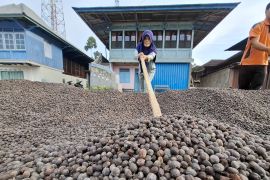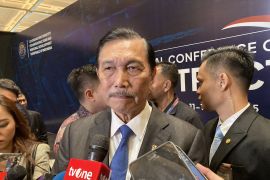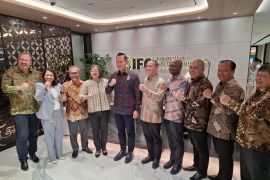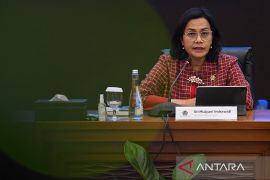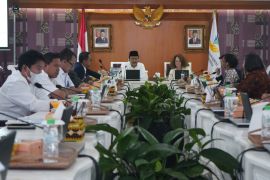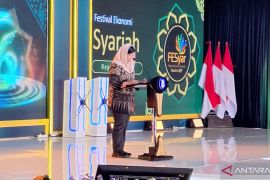"We run the program for three years, starting in 2016 and ending in 2018," said World Bank Representative in Indonesia Isaku Endo, in East Lombok, on Sunday.
He explained the Greenback 2.0 is a World Bank program that seeks to invite the community to take advantage of regulated financial services for the creation of fluency and security in financial transactions.
The invitation was realized in various activities that have been running in the three selected villages, namely Loyok and South Tetebatu in Sikur Sub-district, and Perigi Village, Pringgabaya Sub-district, East Lombok.
"Why we chose the three villages is because they are the pockets of Indonesian migrant workers (TKI) where the East Lombok District is the largest contributor of Indonesian migrant workers," he said.
To introduce the Greenback 2.0 program to the community, the World Bank is partnering with a number of parties, such as Bank Indonesia, the Financial Services Authority (OJK), Bank Negara Indonesia (BNI) and Bank Rakyat Indonesia.
In addition, the WB also partner the Provincial Government of NTB, the Government of East Lombok District, and the Agency for Placement and Protection of Indonesian Migrant Workers (BP3TKI) Mataram.
A number of mobile operators in Indonesia are also involved, such as PT Indosat and PT XL.
Endo said studies on the community needs were also conducted in order to obtain information from local communities about the gap between current conditions and their expectation, in terms of access and use of financial services, and financial management.
"The study using the qualitative approach has been implemented for three weeks in 2016 and then," he said.
His side has also done education to the people of Loyok Village and Desa Perigi, about the service of financial transactions through agents of banks in rural areas.
Endo who is a Japanese also hopes that the guidance given within three years could have a positive impact on the community, especially the families of Indonesian migrant workers on the island of Lombok, to take advantage of remittances from abroad for productive things. (*)
Editor: Heru Purwanto
Copyright © ANTARA 2017

